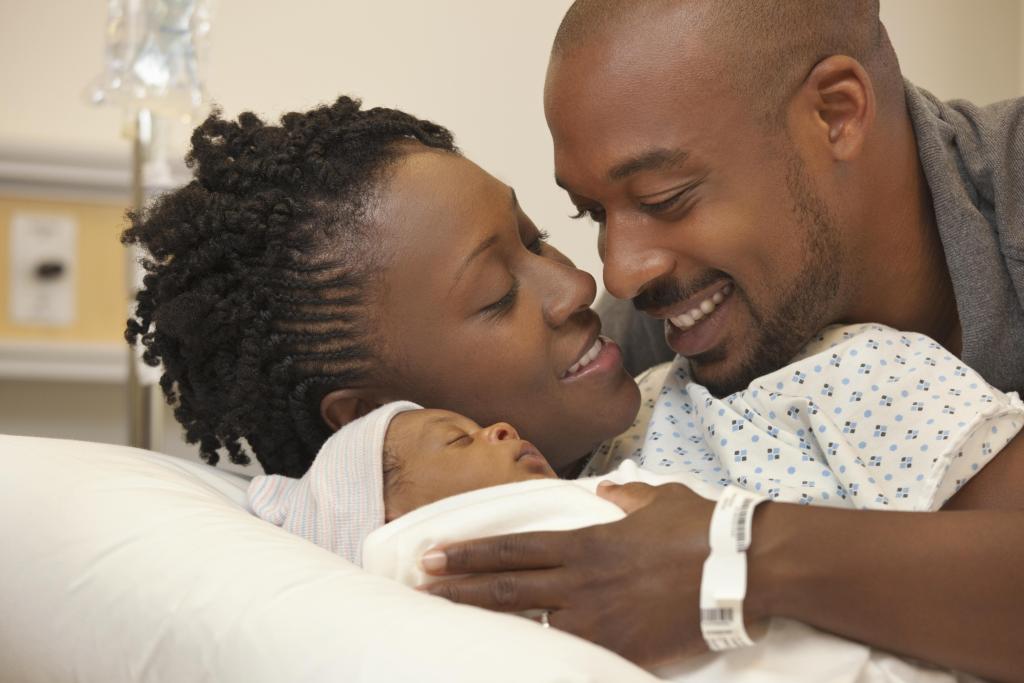
Source: Ariel Skelley / Getty
The 4th Annual Black Maternal Health Week is a yearly campaign founded by the Black Mamas Matter Alliance. It was founded in response to institutions that have codified laws to segregate, marginalize, and disinvest in the health and wellbeing of birthing people, especially Black and Indigenous birthing people.
The COVID-19 pandemic disproportionately impacts Black and Indigenous people, following the same pattern of Black and Indigenous maternal mortality rates. It is well known that US policy choices—from lactation, to paid leave, to cancer treatments, to abortion, to global extraction—have made the United States the most dangerous place in the industrialized world to have a baby or to contract COVID. This is why the nation needs reproductive justice now and why the White House needs to urgently prioritize the most vulnerable birthing people in this country.
In 1994, twelve Black women coined the term “Reproductive Justice,” which consists of three declarations.
1. Every human has the right to decide if and when they will become pregnant, and the right to determine the conditions under which they will birth.
2. Every person has the right to decide that they will not become pregnant or have a baby, meaning that options for preventing or ending pregnancy are accessible and available.
3. Individuals have the right to parent their children with dignity, with the necessary social support, and in safe, healthy communities without fear of violence from individuals or the government. Reproductive Justice also implies that individuals have the right to disassociate sex from reproduction, as healthy sexuality and pleasure are essential components in a whole and full human experience.
This comprehensive framework is aligned with current efforts of the Biden-Harris Administration to root out systemic racism and implement an equitable COVID Response, due to the GPC mission to advance gender equality and equity in both domestic and foreign policy development and implementation. Reproductive Justice advocates, activists and practitioners have proposed a bold, Black women led, approach to operationalize reproductive justice in the White House: Establish the Office of Sexual and Reproductive Health and Well-Being (OSRHW).
While sexual and reproductive health is a critical piece of overall health for many people, public policy often considers it in a vacuum, without integrating the multiple contextual factors impacting individuals’ lives. Federal policies and programs are typically directed toward addressing one “category” of issues and services. For example, traditional reproductive health services like contraception, fertility care, and full-spectrum pregnancy-related care, are often addressed separately from other health services like maternal and infant health, mental health, and substance use, and are further separated from broader supports like quality childcare, comprehensive paid family leave, and housing.
This means individuals often have to receive support from multiple places and providers. By reframing policy design to start with sexual and reproductive health and wellbeing we can integrate health equity and the social supports that ensure good public health, such as housing, employment and educational attainment. Reproductive Justice is the foundation of wellbeing in all aspects of individuals’ lives.
Improving access to and the quality of sexual and reproductive health services and supports has the power to increase bodily autonomy for all people, including those whose autonomy has historically been restricted, particularly Black and Indigenous people. Yet as with COVID-19, access to these services and supports depends heavily on where a person lives, how much money they make, and the extent to which discrimination impedes their ability to act on their reproductive decisions.
At the federal level, the work of multiple agencies affects sexual and reproductive health and wellbeing, yet these efforts are often siloed or have disserved those they are meant to serve. For example, the primary funders of contraceptive care within the U.S. Department of Health and Human Services – Centers for Medicare & Medicaid Services (CMS), Health Resources and Services Administration (HRSA), and the Office of Population Affairs (OPA) – do not have a single definition of “contraception” or approach to funding contraceptive coverage. In the absence of federally defined standards, the range of products and services covered varies by state and by service site, leading to out-of-pocket costs, less client choice in where to get care and what types of contraception to choose from, and persistent inequities in access and health outcomes. Foundational changes to rebuild and maximize existing programs like Title X and Medicaid are part of the new administration’s platform, and have been outlined in detail in the Blueprint for Reproductive Health, Rights, and Justice.

Source: JGI/Tom Grill / Getty
We applaud the White House for taking the first step by establishing the Gender Policy Council. Still, we know that when reproductive health is included in broader gender policy, it is not expansive enough to address the pressing needs of historically marginalized communities. A dedicated leadership body like OSRHW within the White House is necessary to drive focused change, set direction, and hold federal departments accountable for promoting sexual and reproductive health and wellbeing through a human rights, gender, and racial equity lens. OSRHW’s approach moves the rebuilding work forward by reframing the conversation—by reconsidering the frameworks that guide us, the questions we ask, and how we measure, interpret, and share results.
The nation and the White House must signal to the world that they explicitly acknowledge and redress the history and present impact of racism and reproductive coercion—and dedicate resources to dismantle all barriers to full reproductive autonomy.
The Biden-Harris Administration has acknowledged that health is a right. Reproductive Justice is a pathway to codifying that right for all.
